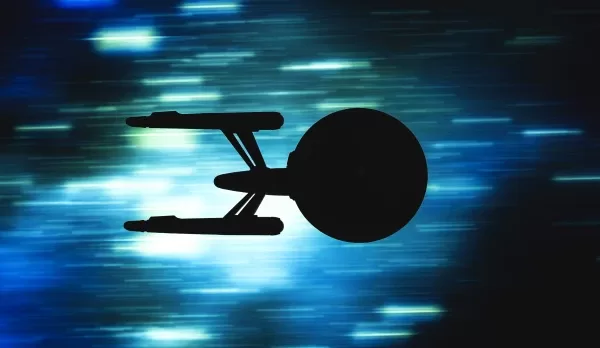
“Attention, humans! Check out ‘Star Trek: The Motion Picture’”
By Aleteia The large-screen Star Trek: The Motion Picture was released in theaters 44 years ago to much anticipation. Unfortunately, the critical reception and box office numbers were lukewarm. It would take Star Trek II a few years later to bring the franchise back to life. The first film has largely been forgotten, watched only by hardcore Trekkies like me. But it is well worth watching. At the film’s heart is a timeless question: What’s the purpose of all this learning we’ve been doing as a species? What do we really need in order to lead meaningful lives? A film saved by friendshipCritics are not wrong about ST:TMP’s faults. It relies too much on special effects that now seem dated. Long sequences of ship movement weigh the film down. The uniforms and the color palette make this sci-fi movie look hopelessly stuck in the 70s. All that said, the creative team — including director Robert Wise and producer Gene Roddenberry, who created Trek — understood that the key to the TV series’ success was the interplay among Captain James T. Kirk (William Shatner), science officer Spock (Leonard Nimoy), and Dr. Leonard McCoy (DeForest Kelley). Their reunion sets up the story’s main theme of friendship and relationship. “Bones, I need you,” Kirk says when McCoy objects to being drafted back into service. Hearing the desperation in his friend’s voice is enough to make the doctor relent and assume his post. Kirk, now an admiral, has no idea how to be himself without a ship to command. When an unknown alien entity is spotted moving towards Earth, destroying everything in its path, a newly refitted Enterprise is the only ship close enough to intercept it. Kirk seizes the chance to get back in the captain’s chair, creating major tension between himself and the ship’s new captain, Will Decker (Stephen Collins), who is forced to cede command. Captain Kirk is antagonistic toward Decker throughout the film, seeing in him the threat of being replaced. Decker becomes the voice of Kirk’s conscience, challenging him to recognize his self-centered motivations. This forces Kirk to rely more deeply on his friendship with Spock and McCoy as he tries to figure out how to be a captain again. Star Trek: The Search for ConnectionThe alien entity, V’Ger, is also interested in connection and relationship, though it does not know why or how to achieve it. After Spock briefly unites his mind with V’Ger, he discovers that it is a living computer, having spent most of its existence cataloging the wonders of the universe and now searching for its “creator” so that it can become one with him and finally find a purpose for all the information it has learned. In many ways, V’Ger is superior to humans. It has greater power and far greater knowledge. But it is cold and hollow. It has no one to share itself with and therefore no sense of purpose. “It knows only that it needs,” says Spock, “but, like so many of us, it does not know what.” Love is more than something we long for as humans. It is our humanity. If asked who we are, we usually start by describing our relationships — I am a father or mother, husband or wife, sibling, friend, professional, etc. I understand myself by looking at you, just as you understand yourself by looking at me. When we are babies, we look intently at the face of whoever is holding us. We try to recognize ourselves by seeing in someone else’s face how he or she sees us. We are who we are because of our relationships with other people, and ultimately because of our relationship with God. Read more…